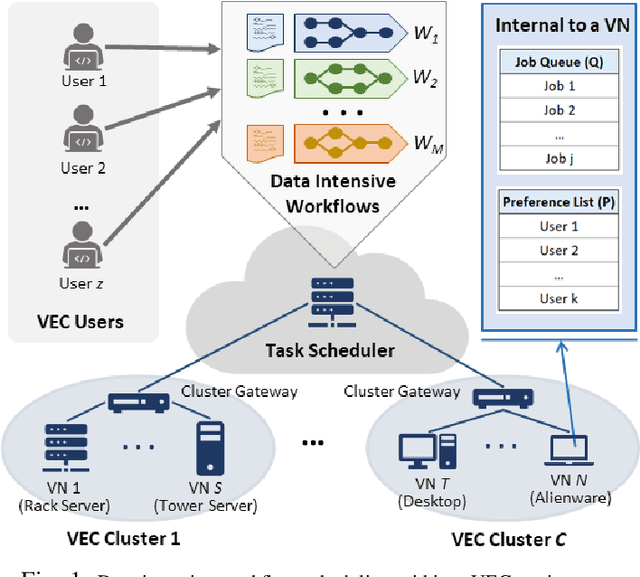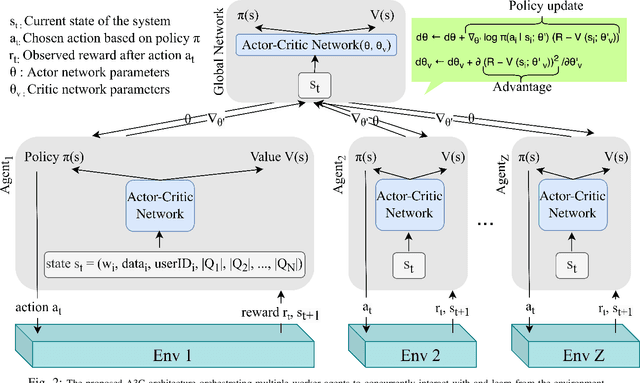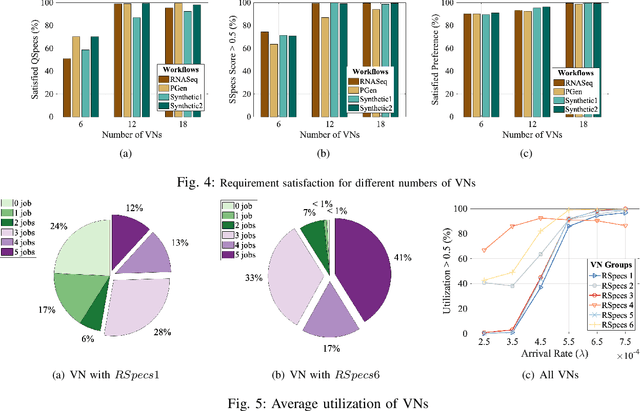Motahare Mounesan
EdgeRL: Reinforcement Learning-driven Deep Learning Model Inference Optimization at Edge
Oct 16, 2024Abstract:Balancing mutually diverging performance metrics, such as, processing latency, outcome accuracy, and end device energy consumption is a challenging undertaking for deep learning model inference in ad-hoc edge environments. In this paper, we propose EdgeRL framework that seeks to strike such balance by using an Advantage Actor-Critic (A2C) Reinforcement Learning (RL) approach that can choose optimal run-time DNN inference parameters and aligns the performance metrics based on the application requirements. Using real world deep learning model and a hardware testbed, we evaluate the benefits of EdgeRL framework in terms of end device energy savings, inference accuracy improvement, and end-to-end inference latency reduction.
Reinforcement Learning-driven Data-intensive Workflow Scheduling for Volunteer Edge-Cloud
Jul 01, 2024



Abstract:In recent times, Volunteer Edge-Cloud (VEC) has gained traction as a cost-effective, community computing paradigm to support data-intensive scientific workflows. However, due to the highly distributed and heterogeneous nature of VEC resources, centralized workflow task scheduling remains a challenge. In this paper, we propose a Reinforcement Learning (RL)-driven data-intensive scientific workflow scheduling approach that takes into consideration: i) workflow requirements, ii) VEC resources' preference on workflows, and iii) diverse VEC resource policies, to ensure robust resource allocation. We formulate the long-term average performance optimization problem as a Markov Decision Process, which is solved using an event-based Asynchronous Advantage Actor-Critic RL approach. Our extensive simulations and testbed implementations demonstrate our approach's benefits over popular baseline strategies in terms of workflow requirement satisfaction, VEC preference satisfaction, and available VEC resource utilization.
 Add to Chrome
Add to Chrome Add to Firefox
Add to Firefox Add to Edge
Add to Edge